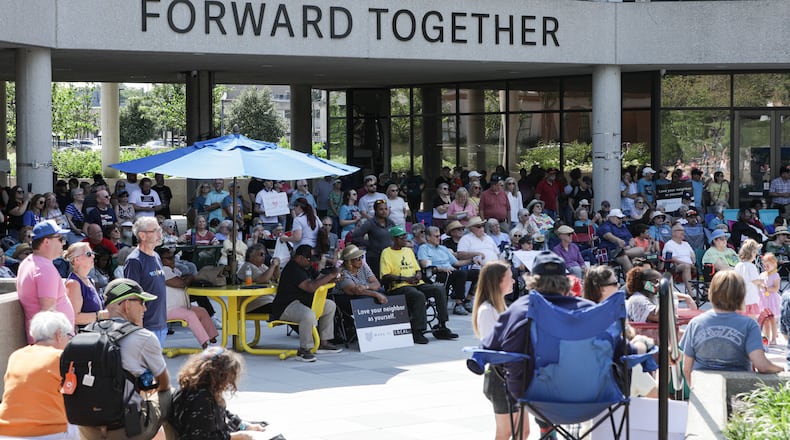Vilès Dorsainvil, president of the Haitian Community help and Support Center, said the center is seeing more people seeking assistance. He said he’s afraid it will turn into a “humanitarian crisis.”
“So many folks are not working, so many folks have been laid off; it’s a very difficult situation for them now,” Dorsainvil said. “They can’t pay their rent, they can’t pay their utility bills. They can’t put food on the table.”
Haitians in this situation need help but Dorsainvil referred to the adage “If you give a man a fish, he will eat for a day, but if you teach a man how to fish, he will eat for life.”
“Imagine today that you give somebody some food items that may last maybe two or three days, that can sustain the folks for just a few days, but that won’t be able to solve the problem,” Dorsainvil said. “But I’m not sure that there will be an institution that will be able to commit to pay rent for folks, especially Haitians that have refugee status.”
Preventing Haitians from working is “sending them on the path to fail,” Dorsainvil said.
Many Haitians who came into the country under the Cuban, Haitian, Nicaraguan, and Venezuelan (CHNV) humanitarian parole program and did not obtain another status lost their jobs when the Department of Homeland Security in June began terminating their statuses. The terminations were appealed, but a district court decision determined those here under humanitarian parole can have their status revoked while a lawsuit on the effort plays out.
Temporary Protected Status was initially set to end Feb. 3, 2026 after the Biden administration extended it, but the Department of Homeland Security announced an official termination would happen Sept. 2, 2025, saying that conditions in Haiti had improved and its immigrants no longer meet the conditions for TPS.
A federal judge recently ruled that ending TPS was unlawful, blocking the program from ending early, but an appeal is expected. TPS is still set to expire Feb. 3, 2026 as of now.
Rollins said St. Vincent de Paul and partner churches in Springfield have been putting together emergency food boxes in addition to regular food pantry activities. She said visitors to the pantry have increased among Haitians and non-immigrants, and she expects to see more.
The area’s largest food bank, Second Harvest Food Bank, earlier this year saw the loss of a key federal food shipment worth more than $200,000. That food, already gathered, appears to have gone to no one.
Second Harvest Food Bank, a member of Feeding America and the Ohio Association of Foodbanks, serves the tri-county community by sourcing, collecting, storing and distributing 6 million pounds of food to 65 non-profit member agencies who feed the hungry directly.
The Clark County Combined Health District continues to estimate a Haitian population of between 10,000 to 12,000 people, which is lower than last year’s estimate of up to 15,000 but does not indicate a mass exodus.
The Springfield City School District had 1,873 non-English speaking students at the end of last school year in May and at the beginning of this year, it’s now has about 1,700, losing about 150 but seeing about 250 new people, said Pam Shay, director of federal programs at the district, during a Haitian Coalition meeting.
In May, the school had 815 Haitian Creole and French speaking students and now has around 745 or 750, she said.
About the Author

